Related Research Articles

Peter Greenaway, is a British film director, screenwriter and artist. His films are noted for the distinct influence of Renaissance and Baroque painting, and Mannerism painting in particular. Common traits in his films are the scenic composition and illumination and the contrasts of costume and nudity, nature and architecture, furniture and people, sexual pleasure and painful death.

The cinema of Hong Kong is one of the three major threads in the history of Chinese-language cinema, alongside the cinema of China and the cinema of Taiwan. As a former Crown colony, Hong Kong had a greater degree of political and economic freedom than mainland China and Taiwan, and developed into a filmmaking hub for the Chinese-speaking world.
The Tulse Luper Suitcases is a multimedia project by film maker and artist Peter Greenaway, initially intended to comprise four films, a 16-episode TV series, and 92 DVDs, as well as websites, CD-ROMs and books. The project documented the imagined life of a fictional character called Tulse Luper.
Hong Kong action cinema is the principal source of the Hong Kong film industry's global fame. Action films from Hong Kong have roots in Chinese and Hong Kong cultures including Chinese opera, storytelling and aesthetic traditions, which Hong Kong filmmakers combined with elements from Hollywood and Japanese cinema along with new action choreography and filmmaking techniques, to create a culturally distinctive form that went on to have wide transcultural appeal. In turn, Hollywood action films have been heavily influenced by Hong Kong genre conventions, from the 1970s onwards.

Raymond Chow Man-wai was a Hong Kong film producer, and presenter. He was responsible for successfully launching martial arts and the Hong Kong cinema onto the international stage. As the founder of Golden Harvest, he produced some of the biggest stars of the martial arts film genre, including Bruce Lee and Jackie Chan. In 2020, he was inducted into the Martial Arts History Museum Hall of Fame.
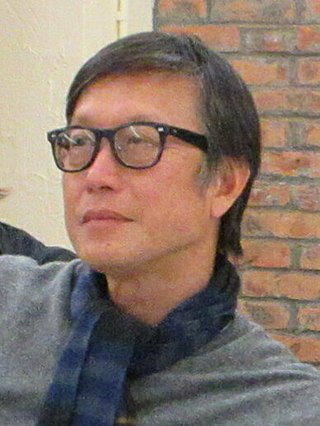
Andrew Lau Wai-keung is a Hong Kong film director, producer, and cinematographer. Lau began his career in the 1980s and 1990s, serving as a cinematographer to filmmakers such as Ringo Lam, Wong Jing and Wong Kar-wai. In the 1990s, Lau decided to have more creative freedom as a cinematographer by becoming a film director and producer. Apart from making films in his native Hong Kong, Lau has also made films in China, Korea and the United States. A highly prolific filmmaker, Lau has made films in a variety of genres, and is most notable in the West for his action and crime films which include the Young and Dangerous film series, the Infernal Affairs trilogy, and Revenge of the Green Dragons.
Andrea Bruschi is an Italian actor who has appeared in a number of comedy, action, and suspense films, and has also worked as a producer, director, and screenwriter.

The Cinema of East Asia is cinema produced in East Asia or by people from this region. It is part of cinema of Asia, which in turn is part of world cinema.

Jack Wouterse is a Dutch actor. His career as a movie actor took off with his role in the 1992 film The Northerners, directed by Alex van Warmerdam. Wouterse made his international debut in an episode of the TV series Band of Brothers. He frequently worked with murdered Dutch director Theo van Gogh.
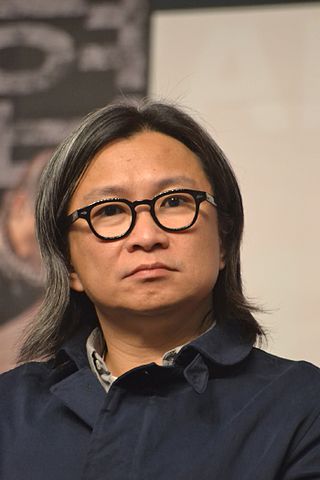
Peter Ho-sun Chan, also known as Peter Chan, is a Hong Kong-born filmmaker best known for directing films that span a wide range of genres, including romantic comedies, musical dramas, and historical epics. He is recognized as one of the most prominent directors in Chinese cinema, being the first director to win Best Director awards at the Hong Kong Film Awards, the Golden Horse Awards, and the China Golden Rooster Awards.
Quentin Lee is a Hong Kong-born Canadian-American film writer, director, and producer. He is most notable for the television series Comedy InvAsian and feature films The People I've Slept With (2009), Ethan Mao (2004), and Shopping for Fangs (1997), which he co-directed with Justin Lin.

Terence Chang Chia-Chen is a Hong Kong and American film producer.
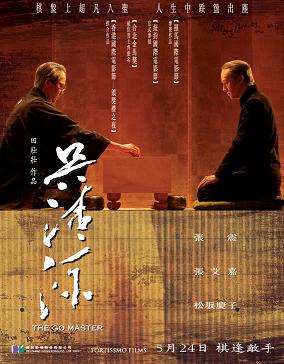
The Go Master is a 2006 biopic film directed by Tian Zhuangzhuang of the twentieth century Go master Wu Qingyuan, better known as Go Seigen, the Japanese pronunciation of his name. The film, which premiered at the 44th New York Film Festival, focuses on the life of this extraordinary player from his meteoric rise as a child prodigy to fame and fortune as a revolutionary strategic thinker, as well as the tumultuous global conflicts between his homeland and his adopted nation. The film also features a scene involving the Atomic bomb go game. The film also screened at the AFI's China Film Festival in Silver Spring, Maryland.

Getting Home is a 2007 Chinese comedy/drama film directed by Zhang Yang and starring Chinese comedian Zhao Benshan. It is episodic and follows two workers in their 50s, Zhao and Liu. The film opens when Liu unexpectedly dies after a night of drinking and Zhao decides to fulfill a promise to his friend to get him home, beginning a long odyssey from Shenzhen to Chongqing with Liu's corpse on his back. Along the way, Zhao meets a variety of figures, played by several of China's better known character actors.
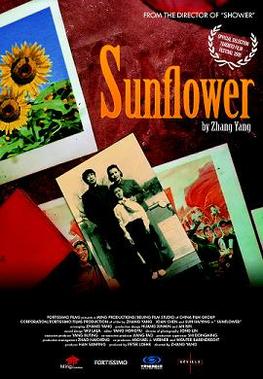
Sunflower is a 2005 Chinese film directed by Zhang Yang. Zhang's fourth film, Sunflower is a joint production of Ming Productions, the Beijing Film Studio and the Hong Kong subsidiary of the Netherlands-based Fortissimo Films. It was distributed by Fortissimo Films and New Yorker Films.
Fortissimo Films is a Dutch entertainment company specializing in the production, presentation, promotion and distribution of feature films, founded in 1991 with offices in Amsterdam.
Wouter Barendrecht was a film producer. With Michael J. Werner, Barendrecht was the co-chairman of Fortissimo Films, a company he founded in 1991 in Amsterdam.
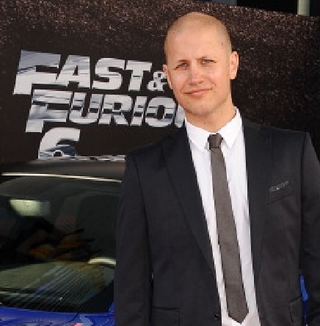
Benjamin John Gareth Davies is a Scottish actor.

Derek Tsang Kwok-cheung is a Hong Kong filmmaker and actor. The son of actor Eric Tsang, Tsang got his start in the Hong Kong film industry working for director Peter Chan after graduating from University of Toronto Scarborough in 2001. He made his acting debut in Men Suddenly in Black (2003) and directorial debut with Lover's Discourse (2010), sharing the directing credit with Jimmy Wan Chi-man. The duo was nominated for Best New Director at the 47th Golden Horse Awards.
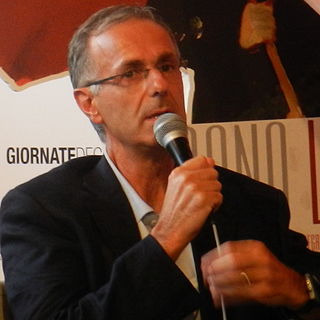
Roberto Citran is an Italian actor.
References
- ↑ Wouter Barandrecht, Michael J. Werner – co-chairmen, Fortissimo Films Archived October 19, 2007, at the Wayback Machine , Variety; retrieved 2007-11-24